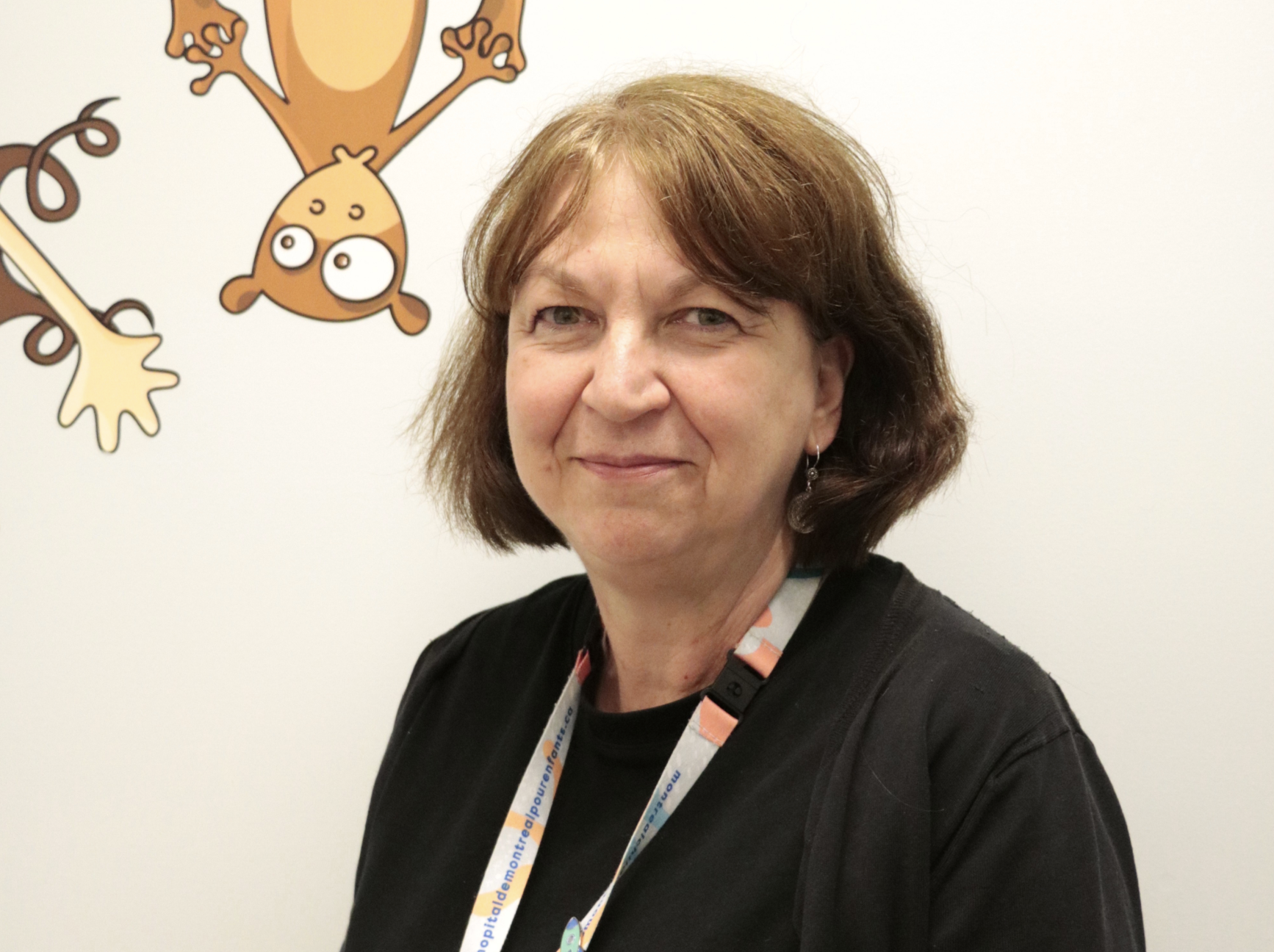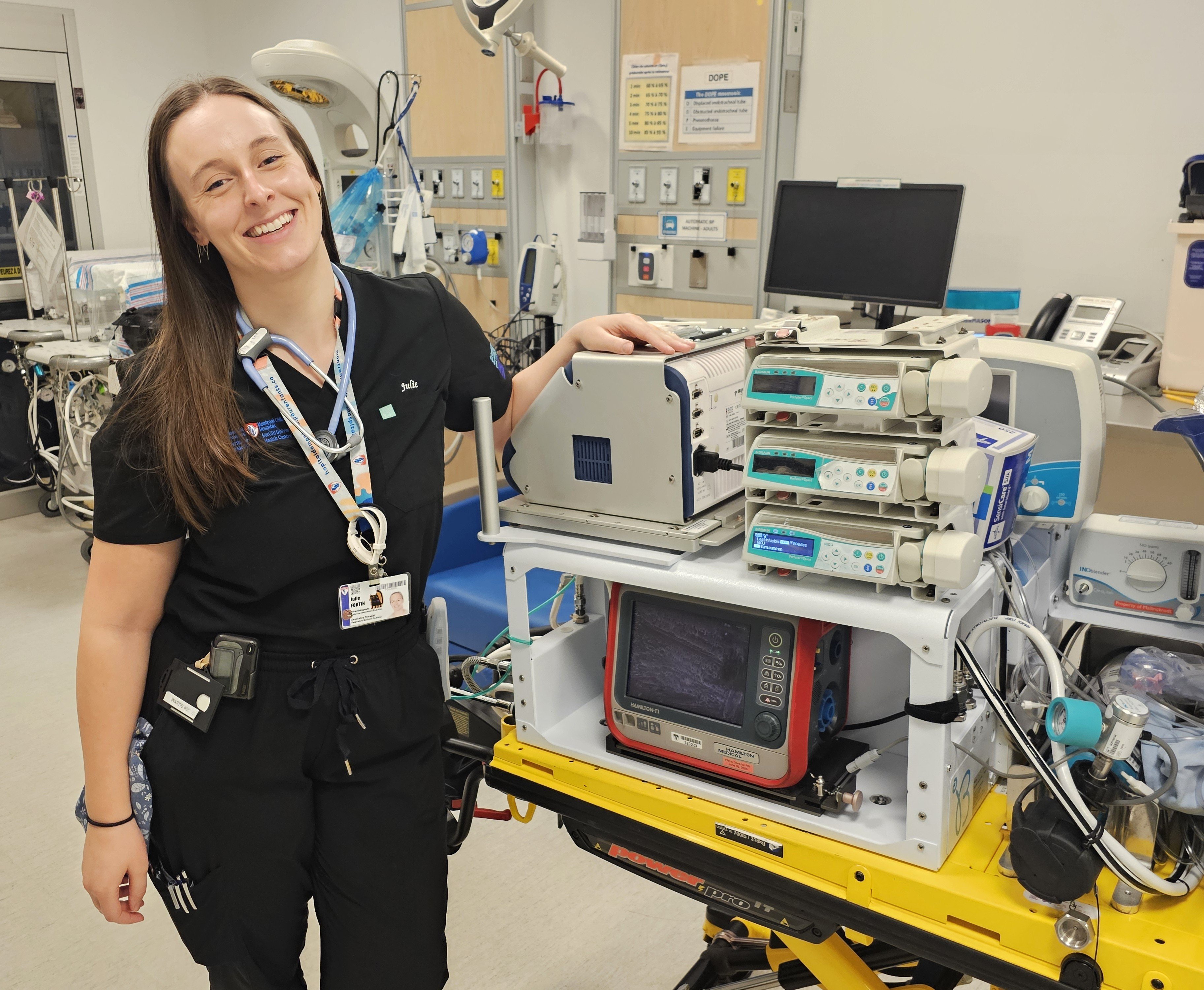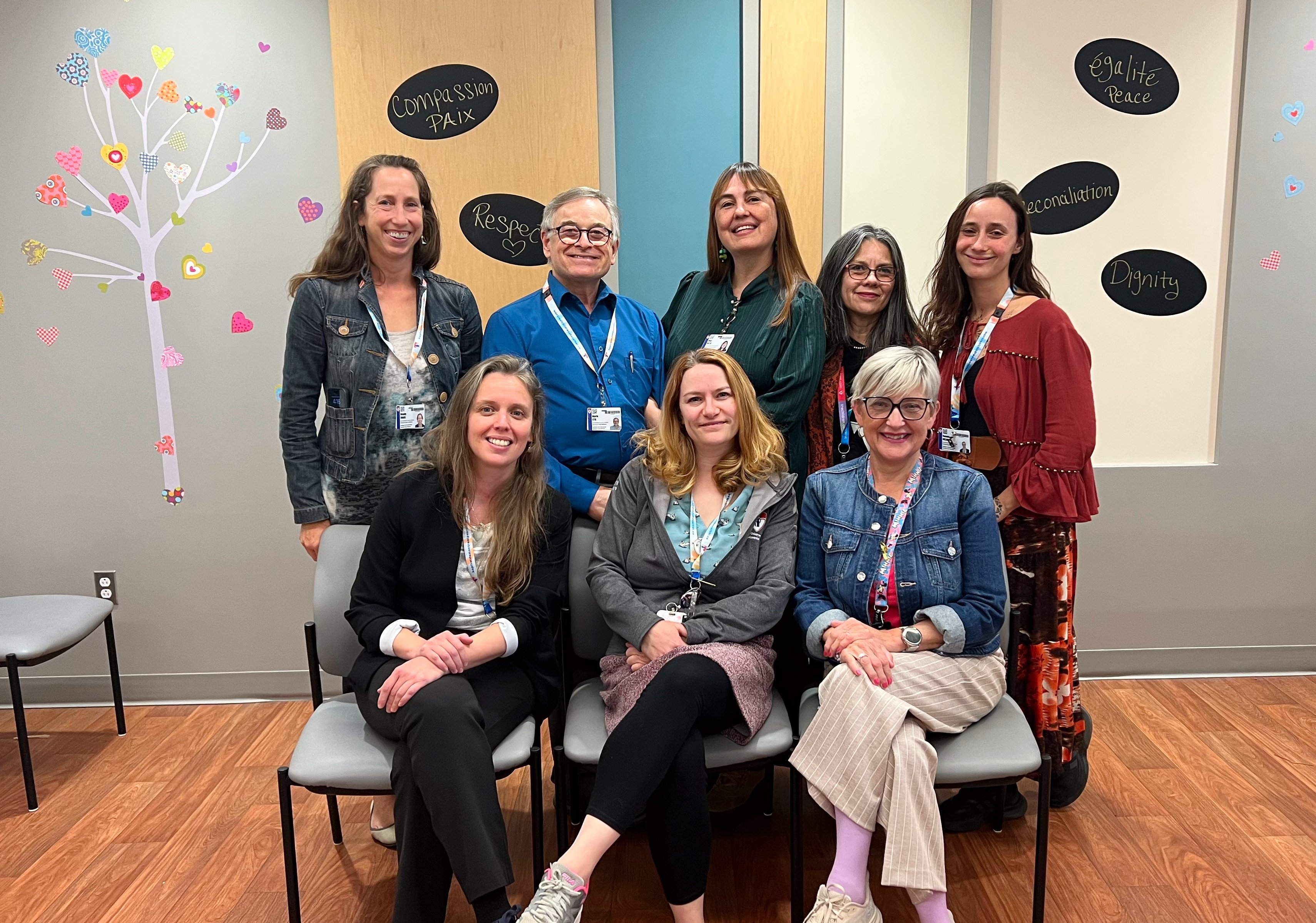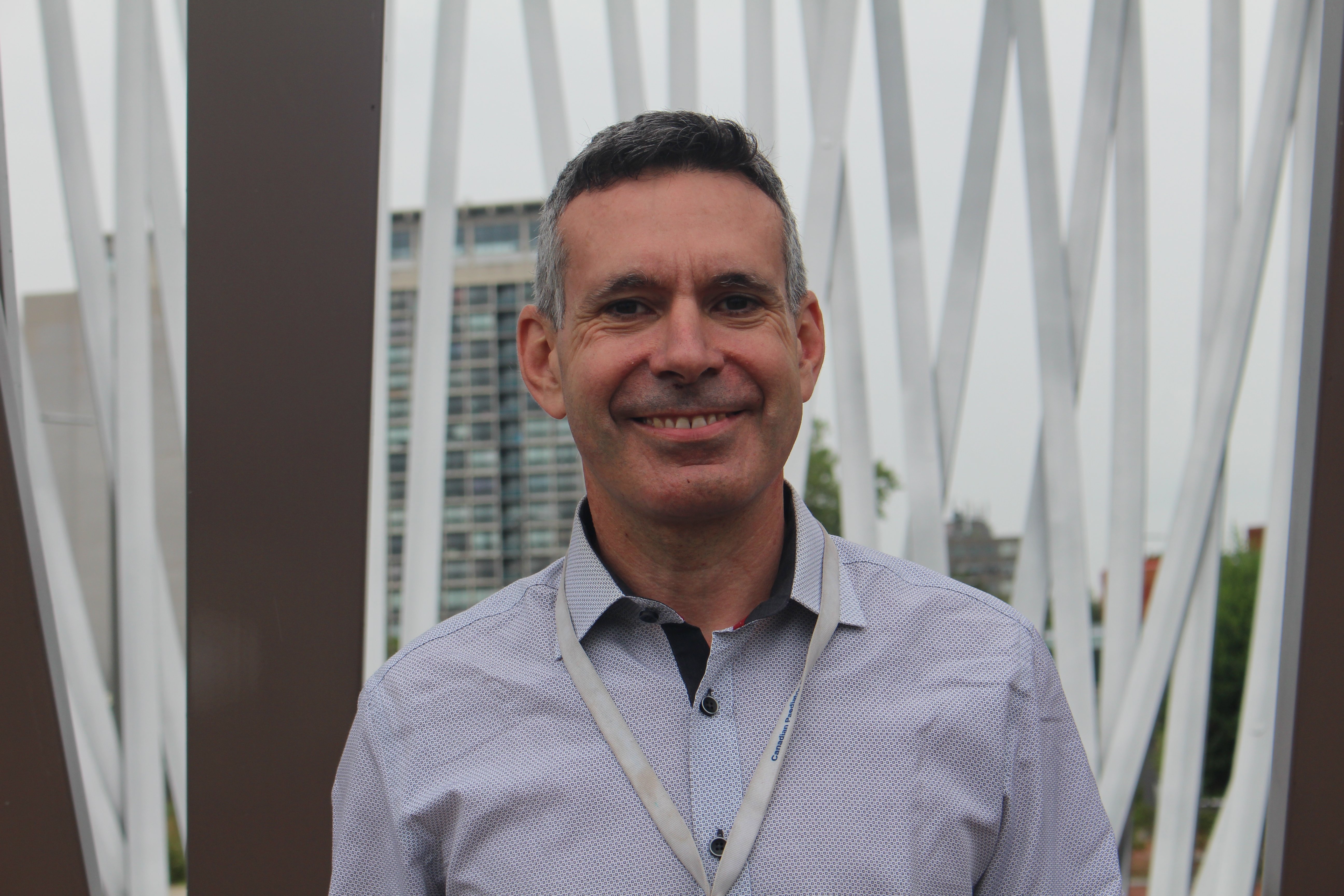
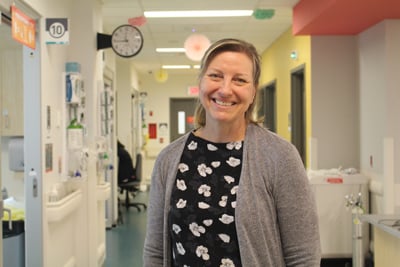
A day in the life of….a Pediatric Nurse Practitioner
24 May 2019
After many years of hard work, Linda Massé will soon be the first Quebec-trained Pediatric Nurse Practitioner in the province
Linda Massé has been working at the Children’s for 34 years, and 31 of them have been in the Pediatric Intensive Care Unit (PICU). “I’m an action person,” she says. “I love taking care of people and I like following through from start to finish. I think that’s why I’ve always loved working in critical care.”
Naturally curious and self-motivated, Linda has always been interested in furthering her knowledge and advancing her profession. But it was her experience at the bedside, hearing about the role of Pediatric Nurse Practitioners (PNPs) abroad and following through on the vision of previous PICU medical and nursing leaders that prompted her to work on developing this new role at the Children’s and across the province several years ago.
“It’s been proven that having PNPs as part of care teams helps to reduce patients’ length of stay and improves the continuity of care,” she explains. “My experience with my own patients convinced me that these benefits could also be advantageous in Quebec in a pediatric hospital setting.”
Making a vision a reality
Thus began a lengthy collaborative process to turn this vision into reality. With the pivotal help of the MUHC and MCH’s senior nursing administration, along with collaboration from McGill’s Ingram School of Nursing, Linda began lobbying the government for a program to be developed to train PNPs in the province of Quebec. With their help, she was named Nurse Coordinator for the PNP program at McGill University, and in collaboration with Dr. Tanya Di Genova, the program’s Medical Director, along with MCH physicians who generously offered their time, she developed a new curriculum to train PNPs and to offer them clinical rotations within the hospital.
As a contributor to this new stream of Nurse Practitioners, Linda is a pioneer in her own right, becoming the first Quebec-trained Pediatric Nurse Practitioner in the province. This June, four PNP students will be embarking on their clinical rotation at the Children’s, with more than five students per year following in their footsteps in the years to come. Their new roles will be embraced by specialties across the hospital, in departments like the PICU, Complex Care and many more.
Embodying a new role in pediatrics
When it comes to her day-to-day duties, Linda’s role as a PNP in the PICU is both autonomous and collaborative. “A PNP is ultimately an experienced nurse, with extensive medical knowledge,” she asserts. “I have my own patient load of four to six patients at a time. It’s my job to evaluate them, develop a care plan and readjust it as needed throughout their stay.” This requires daily participation in Medical Rounds to ensure she is up-to-date on the assessments of other healthcare professionals in the team, and frequent discussions with patients and their families.
“I gather all the information I can before developing a therapeutic plan, organize admissions, transfers and create summaries and notes to optimize patient care. Because of my role, I get to know my patient population intimately, and I have additional latitude to order consultations to conduct more thorough investigations or order medications.” If and when Linda reaches the limit of her capacity to help a patient and family, she reaches out to her partner physician to ensure her patient receives the best required care possible.
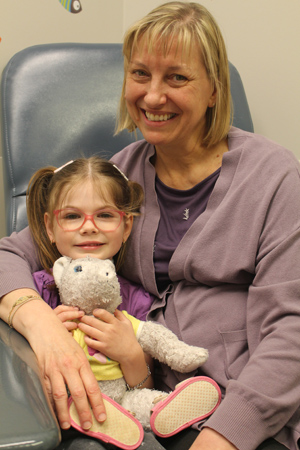 This amplified nursing role is key, particularly for patients with chronic medical issues and complex needs, says Linda, because it fills a gap in patient care. “The patients that I help care for have complicated medical needs, but these needs might be considered less critical to the medical staff who are frequently very busy with the most critical and intense cases,” she says. “As a PNP, I can step in and offer them a more thorough follow-up with a more global overview of all the moving parts in their care, with the ultimate benefit of working to prevent problems and avoid them reaching a critical status.”
This amplified nursing role is key, particularly for patients with chronic medical issues and complex needs, says Linda, because it fills a gap in patient care. “The patients that I help care for have complicated medical needs, but these needs might be considered less critical to the medical staff who are frequently very busy with the most critical and intense cases,” she says. “As a PNP, I can step in and offer them a more thorough follow-up with a more global overview of all the moving parts in their care, with the ultimate benefit of working to prevent problems and avoid them reaching a critical status.”
Experience and knowledge combined
As a PNP, Linda can also tap in to her extensive nursing training to provide teaching, develop new protocols and conduct research. As a veteran nurse on the unit, Linda’s experience with tracheostomies has made her a specialist on the subject. She is therefore the unit’s go-to tracheostomy troubleshooting resource, conducting workshops for nurses, residents and fellows, as well as doing one-on-one sessions with parents in partnerships with the hospital’s Complex Care Service.
The most rewarding part of her journey, says Linda, is being able to use the experience and knowledge she has gained over the course of an entire career to provide the right care at the right time for patients and families. “It’s been a long journey to get this training recognized and formalized,” she says. “It’s truly been a team effort between our physicians, administrators and stakeholders at the government level, and I’m excited to see this vision become a reality for our patients and our care teams.”





